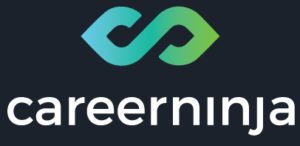If the idea of building the next Amazon, Netflix, Facebook or Instagram excites you, then you’re destined to become a web developer.
Now you might be wondering –
“I’ve already pursued a different major and am working in a completely unrelated field? Can I still become a web developer?”
“How do I switch careers to become a web developer?”
Or you might be wondering – “I’m studying programming. But how do I get into web development?”
To answer all such questions, we’ve created this beginner’s guide to becoming a web developer on India – with or without a degree. So that you don’t have to rack your brains still wondering whether or not you can pursue a career in web development.
How to become a web developer if you’ve not studied web development?
This is the most commonly asked question. Several web development aspirants aren’t really pursuing a technical degree. Well, for all such dreamers out there, we’ve got good news – Yes, you can become a web developer even if you don’t have a Computer Science degree!
The 5-step process to becoming a web developer from scratch without a computer science degree
Step 1. Learn the basics
If you want to switch fields, you can’t simply apply for a job in a new field with zero knowledge about the field, can you?
So, what do you do?
You start by teaching yourself the basics! The easiest way to figure out what it is that you need to learn is to look at the requirements for entry-level job positions in your desired field.
For web development, you will need to know JavaScript, HTML and CSS, Git commands, GitHub, responsive design, relational databases, operating systems, and modern UI frameworks to land an entry-level job as a front-end developer.
If you wish to work as a back-end developer, you will also need to know PHP, various frameworks, libraries, databases, and working with web as well as cloud servers.
That’s why you should start by training yourself in the basics.
Step 2. Train yourself to ‘clean code’
While training yourself to code, strive to make variable and function names understandable in English using comments. Which means that you will have to write a bit more.
But if you don’t, you will have to manually document it sometime in the future to make it clearer. This will eventually cause your code base to become harder for you to understand.


Step 3. Take an online course
You don’t need to be of a certain age or have a certain educational qualifications to take an online course. There are several free courses on the internet that allow you to learn programming without paying a dime.
Different beginner’s courses will teach you different things. Research a little to find out which subjects interest you and find a course that allows you to learn those subjects.
We’ve prepared a list of free online web development courses for you to get started as a web developer.
Step 4. Practice, practice, practice
Once you have got a hang of the web development basics, start building something. The best developers learn by building a site or a web app, tinkering around it until it becomes something functional. It might not look like the greatest website in the world, but if you get the site working, it’s a huge accomplishment.
So, set up a Github account and start pushing your code on that site. Github projects are the unofficial portfolios of developers worldwide. When employers are searching for the right web developer for their organizations, what catches their attention is a Github account with several project. That’s because your Github account will demonstrate how you approach and solve programming issues. These projects are a reflection of your thought process, your strategies, and your problem-solving skills.
Step 5. Contribute and participate
Don’t wait for the perfect opportunity to fall on your laps. Start contributing to opensource projects, participate in hackathons, events, and meetups. Doing this will help you learn what’s in demand and update your skills accordingly, connect with other professionals in web development and network with them. And before you know it, you’ll land a decent entry-level web developer internship or job.
How to become a web developer if you still haven’t chosen your undergraduate degree?
If you’re yet to choose a course for your undergraduate degree and you’re interested in web development, here’s what you can do to become a web developer!
The 5-step process to becoming a web developer with a degree in computer science or a related field
Step 1. Choose a development specialization
Building a website is a complex task.
Front-end and back-end developers have specific jobs.
Web developers need to be proficient in various programming languages (PHP, JS, Python, Ruby), frameworks and libraries (jQuery, Node.JS, React, Angular), databases (SQL, MongoDB), operating systems, content management services like WordPress, and hosting services such as AWS. They need to have an understanding of the web development process as a whole, and not just have knowledge of their specific role.
Before starting out, get an understanding of the type of web development work that you find interesting. For instance, find out if you are inclined towards mobile or web app application development, interface design or front-end development. This will help set the stage for future education and training.


Step 2. Get a degree
While you can learn coding languages independently, web development is so much more than coding. Getting a formal education in web development will help you understand the basic concepts of web development practices and principles, expose you to project management, and encourage critical thinking.
A computer science degree or a bachelor’s degree in a related field will help you get started in the field.
Step 3. Develop technical skills
Despite the advantages of a formal education, concrete skills trump education when it comes to landing a job in web development.
Prospective web developers need to know the three core programming components – HTML, CSS, and JavaScript. They should also have expertise in front-end frameworks like Bootstrap and Backbone if they want to be front-end developers.
Learning how to deploy sites and apps on AWS, Oracle, Azure, Google Cloud, configuring web and cloud servers is essential for a back-end developer. These concepts have a steep learning curve and yet, a great demand as they are used by all major businesses to host their services on the internet.
These are skills that you might not learn at the university. That’s why you should take up some online courses to learn these skills that’ll make you a much more attractive candidate to potential employers. Check out our list of free online web development courses to find some course that might add value to your profile.
Step 4. Practice your coding skills
Set up a Github account and push code on that site. If an employer is searching through stacks of resumes, coming across an active Github account will catch his attention.
Your Github account will demonstrate what you do to solve programming issues and how you think and come up with those solutions. Practicing coding and getting used to using Git will prepare you to manager complicated site and application builds. While you’re at it, work on freelance projects, contribute to opensource projects, participate in hackathons, events, and meetups.
Doing this will help you land a decent web developer job. Here are some top web development companies in India. Go through their job descriptions to find out where you need to improve.
Step 5. Create an online portfolio
Employers want to see what you have successfully accomplished in the past in the world of coding.
Launching an online portfolio will help you test new technologies and tools, as well as demonstrate your coding talent and technical capabilities. A standout portfolio, that has a successful site and application builds, will help you land a job interview!
To Summarize
Web development is an exciting field which is at the forefront of the digital age. Whether you are yet to choose your major or you are a part of a completely unrelated field, you can pursue web development by following our advice.
Found this article interesting? Find out about some free online web development courses available.
































